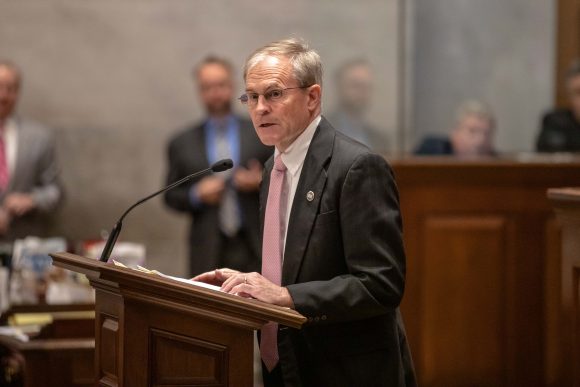Over at Dad Gone Wild, Nashville education blogger TC Weber talks about the Florida Virtual School, Common Core State Standards, and MNPS. Here’s a little hint: Tennessee’s state standards are basically Common Core — but don’t tell that to the newest member of the Textbook Commission!
Here’s TC’s take on Florida Virtual School and some apparent law-breaking:
Tennessee school districts are required to teach Tennessee standards using materials drawn from the state’s approved list of materials, or in which a district has obtained a waiver of use. The emergency rules allow a little bit more flexibility when it comes to online learning, but not when a district is delivering in-person instruction.
As part of its response to the challenges presented by COVID-19, Metro Nashville Public Schools chose to purchase a curriculum from the Florida Virtual School in order to standardized instruction across the district. As an added benefit, many of the accountability requirements called for by the state were embedded in the FLVS offerings – attendance, grading, assessments. It was a plan that made a lot of sense in light of the disruption students would experience this year. But to bring to fruition, it required every school to adopt the curriculum with fidelity. Which is something, right or wrong, that did not happen.
At last week’s committee meeting, State Representative Regan brought forth a question as to whether MNPS had been granted a waiver to use the FLVS curriculum. Board spokesman Nathan James did his best to dance around the question, but Regan was relentless, and eventually, it was revealed that no such waiver had been secured despite ongoing collaboration between the DOE and MNPS. Furthermore, MNPS had received written notification that they were in violation of Tennessee state law due to a failure to secure that waiver.
This question of approval is not a new conversation for me. Back when the use of Florida Virtual School was first proposed I raised the question of it requiring a waiver. That question was posed at an MNPS school board meeting by then-school board member Jill Speering back in July. Speering’s question was dismissed and she was assured, no waiver was required.
At issue here is that Tennessee law prohibits the teaching of Common Core State Standards, it takes less than a perfunctory search to identify that Florida Virtual School curriculum is deeply rooted in CCSS. Now that might be a dismissable factor considering the current situation if we choose to ignore the proliferation of CCSS architects currently employed by the Tennessee Department of Education. Be it AchieveTheCore, the Liben Foundation, CKLA, or David Steiner, it’s pretty clear that the department is deeply invested in the theory of CCSS despite their repeated claims to the contrary. If it looks like a duck, walks like a duck, quacks like a duck… it’s probably a duck.

For more on education politics and policy in Tennessee, follow @TNEdReport
Your support – $5 or more – makes publishing education news possible.










